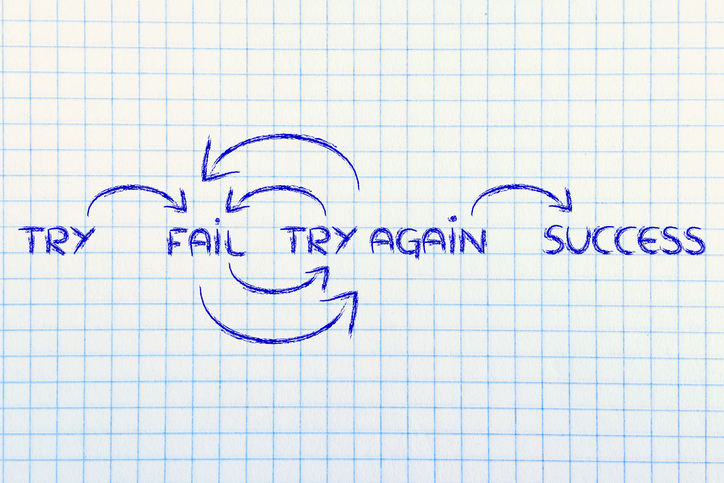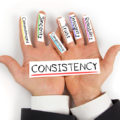“I have not failed. I’ve just found 10,000 ways that won’t work.”
I have experienced many setbacks in my life and the most notable is flunking out of college. As I reflect on my past failures, I can appreciate the lessons learned and the resiliency I established. You will inevitably experience setbacks in life and how well you manage these perceived failures will determine your destiny.
Negative experiences or failures often invoke intense negative emotions and stick with you longer than positive experiences. Setbacks are more likely to happen than not; so irrespective of your emotional state, the key is to establish a mindset and strategies to overcome setbacks. Having skills are great, but if you aspire to accomplish great things, your commitment to work through setbacks will be as important.
The importance of working through setbacks
Your commitment to work through challenges will help promote growth, resiliency and optimize your return on setbacks. If you lack the capacity to overcome setbacks, you will miss out on opportunities to reach your full potential.
Take Control of How You Respond to Future Setbacks
Failures can be difficult to accept and can chip away at your confidence and resolve. Common responses are denial, blame and self-loathing. These reactions to setbacks are counterproductive and often limit progress or result in quitting. Another common response is to avoid difficult challenges because you will feel judged or inadequate. If you see these responses in yourself, you should change this.
Everyone processes events differently and improving your response to failures will help you move forward. Successful people often look at setbacks and failures as part of the process to achieve great things. So how can you change how you respond to failures? Begin to take ownership of the results in your life and feel that you have control of outcomes. An effective strategy is move towards understanding why you are experiencing setbacks and gain valuable insight for working through barriers.
I will share my strategies to help override limited thinking and mentally prepare you for setbacks when they come your way.
Tips to Change How You Respond to Setbacks
Tip 1: Expect Setbacks
Any successful person experiences setbacks and goes hand in hand with trying to reach your full potential. Embrace the challenge and proudly recognize working through setbacks as a badge of honor.
Tip 2: Acknowledge The Setback
No one is immune to setbacks, and if you experience one, recognize the problem. By taking ownership of the setback, this can start the process of transforming into a wiser, stronger, and better version of yourself.
Tip 3: Internal Transformation
Establishing an empowering mindset is an effective strategy for helping you improve your response to future setbacks. If you establish enthusiasm and excited for what you want to accomplish, your resolve and commitment will be there when you face challenges. Changing your mindset will change how you respond to events and improve your behavior, attitude and outcomes.
Tip 4: Change How You Interpret Failure
Commit to No Longer……..
-Attaching yourself to failure and considering it a character flaw
-Judging yourself and focusing on your negative qualities
-Making excuses or deflecting blame
-Feeling devastated or angry for days
-Reliving the humiliation of past failures
-Feeling indifferent and not bothered by failure because my expectations for myself are very low
You Will Now Commit to…..
-Accepting the setback as a process of evolving and comes with the territory of self-improvement
-Working through setbacks and not giving up when you face adversity
Tip 5: Shift Your Focus
Develop a “Never Give Up Attitude”. By improving your mindset and resiliency, you will no longer accept giving up. Shift your focus on identifying the benefits of working through setbacks. By recognizing the importance of busting through barriers, you will establish emotional leverage to keep you moving forward.
Possible benefits of working through setbacks:
Adding Value to Your Life
Growth potential
Recognize that your knowledge, skills, or strategies are currently not at the level needed to achieve the objective. Once you acknowledge your deficiencies, then shift your focus on identifying areas for learning and growth. Setbacks are excellent learning moments to help you formulate strategies to avoid similar challenges in the future. Directing your focus on what can be gained by the setback, you will improve and the world gets better.
Developing resiliency, mental toughness, grit, etc.
Life is easier when things are going well, but when setbacks happen, your resolve can waver. Each time you have a setback and get back up and keep moving forward, you develop resiliency. Developing resiliency and mental toughness plays an important role in working through setbacks and reaching your full potential.
Discovering who truly supports you
Helps you discover your true friends and support system-the people that are with you through the tough times, not just when things are going well.
“If you have made mistakes, even serious ones, there is always another chance for you. What we call failure is not the falling down, but the staying down.”
Final thoughts:
I believe life events need to be assessed and viewed beyond the immediate results. As Malcolm Gladwell describes, if where you end up is better off than where you were before, then the challenge is a desirable difficulty. This approach allows for a delay in judgement and a better appreciation for the process of growth. If you start defining failures as desirable difficulties, you will establish a mindset for looking at the benefits of setbacks.
Suggested readings to help you work through setbacks:
Read more:






